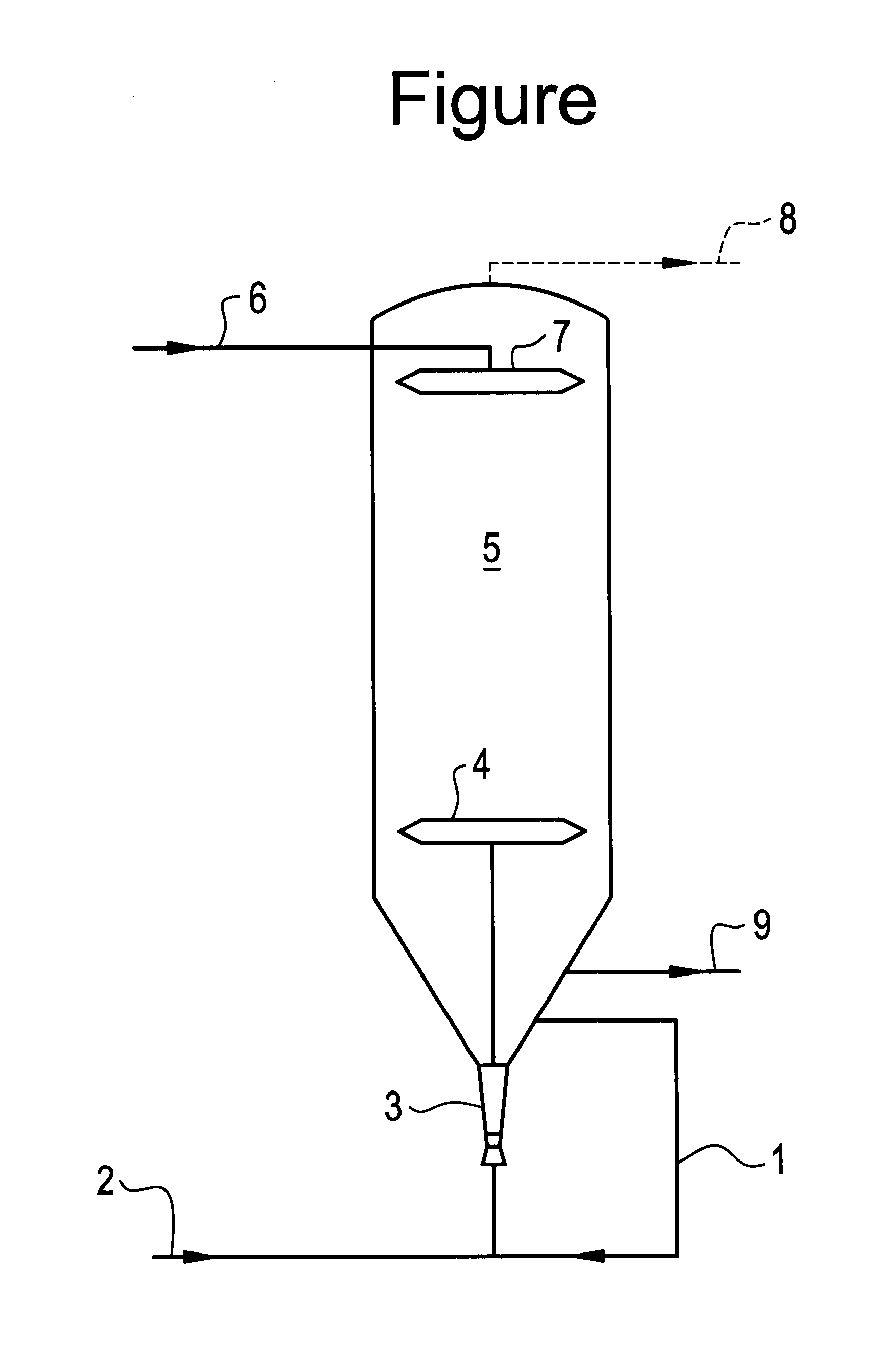Process for continuous oxidation
a technology of oxidation and process, applied in chemical/physical/physical-chemical processes, chemical compound preparations, organic chemistry, etc., can solve the problems of pressure drop due to fittings such as perforated plates, pressure drop due to perforated plates, and uneconomical technical complexity
- Summary
- Abstract
- Description
- Claims
- Application Information
AI Technical Summary
Benefits of technology
Problems solved by technology
Method used
Image
Examples
Embodiment Construction
The process according to the invention can preferably be performed in such a way that the gas bubbles generated in the mixing organ have a maximum diameter of 2.5 mm, particularly preferably of less than 1.5 mm, in order to permit a rapid transfer to the liquid phase.
Examples of possible mixing organs with which this size of gas bubble can be achieved include perforated plates, diffuser stones, static mixers or nozzles.
A Venturi nozzle is particularly suitable for the process according to the invention. This known device has a lower pressure drop in comparison to other mixing organs. Depending on the energy supplied and the volumetric flow rate, the nominal width of the channel is set in such a way that the maximum gas bubble diameter does not exceed 2.5 mm.
The mixing organ is preferably positioned in such a way that the preoxidized substance can pass from the oxidation reactor to the mixing organ by natural circulation. The mixing organ can be fitted directly to the base or to the ...
PUM
| Property | Measurement | Unit |
|---|---|---|
| diameter | aaaaa | aaaaa |
| diameter | aaaaa | aaaaa |
| vol. % | aaaaa | aaaaa |
Abstract
Description
Claims
Application Information
 Login to View More
Login to View More - R&D
- Intellectual Property
- Life Sciences
- Materials
- Tech Scout
- Unparalleled Data Quality
- Higher Quality Content
- 60% Fewer Hallucinations
Browse by: Latest US Patents, China's latest patents, Technical Efficacy Thesaurus, Application Domain, Technology Topic, Popular Technical Reports.
© 2025 PatSnap. All rights reserved.Legal|Privacy policy|Modern Slavery Act Transparency Statement|Sitemap|About US| Contact US: help@patsnap.com

